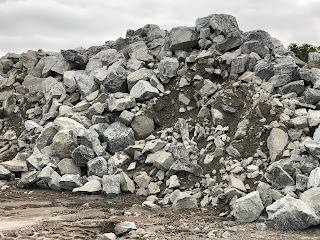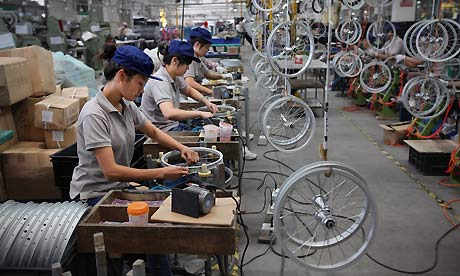We're just a couple of days from the autumnal equinox. I've noticed the decreasing amount of daylight although, interestingly, about two weeks ago, the days weren't much shorter than they were when I was in Siem Reap, which is around the 13th parallel north of the equator.
But I know that in the coming weeks it will be more difficult to "sneak in" a long afternoon ride. (I'm not afraid to ride in the dark; I just prefer to ride in daylight.) So, today, I set out for the ocean and made it to Point Lookout.
I wonder when "construction" of the Lookout spot--and beach--will end.
It looks more like destruction to me.
Perhaps, one day, whatever life forms are living on this planet will chance upon sites like these and wonder what sort of creatures roamed this land.
Of course, they would never surmise that such beings ambled forth on conveyances like this:
into vistas like this:
But I know that in the coming weeks it will be more difficult to "sneak in" a long afternoon ride. (I'm not afraid to ride in the dark; I just prefer to ride in daylight.) So, today, I set out for the ocean and made it to Point Lookout.
I wonder when "construction" of the Lookout spot--and beach--will end.
It looks more like destruction to me.
Perhaps, one day, whatever life forms are living on this planet will chance upon sites like these and wonder what sort of creatures roamed this land.
Of course, they would never surmise that such beings ambled forth on conveyances like this:
into vistas like this:










